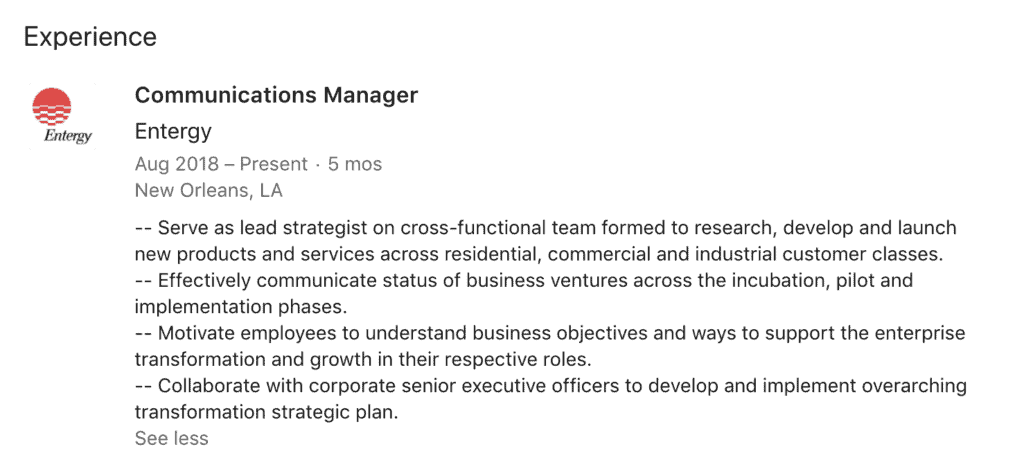Entergy continues to receive significant scrutiny due to its use of paid actors to feign public support in New Orleans City Council hearings for a proposed natural gas plant, which the council approved earlier this year. Since the approval of the power plant and the revelation of paid actors, the council called for an independent investigation to further examine Entergy’s role with Crowds on Demand and the Hawthorn Group, the public relations firm that hired the firm which hired the actors.
After receiving the final report from the independent investigators in October, the council fined Entergy $5 million as it was deemed that Entergy “knew or should have known” about the astroturfing, and because of the utility’s refusal to fully cooperate with the independent investigation. Investigators told the council, “Entergy has refused to produce the underlined items despite timely and repeated requests.” Entergy’s refusal to fully cooperate leaves many questions unanswered.
Here are several questions council members, journalists, and Entergy New Orleans ratepayers should continue to ask executives of their regulated utility.
What are Charles Rice and Yolanda Pollard doing now for Entergy, especially if their salaries are paid for by ratepayers?
Former Entergy New Orleans CEO Charles Rice and Communications Manager Yolanda Pollard were the lead staff members responsible for the execution of the effort to build public support for its controversial natural gas plant. After the revelation paid actors were used to voice support for the plant, Rice and Pollard were reassigned to Entergy’s corporate office. Both claimed their reassignment was not related to the scandal. Rice, however, told Tara Raymond, his administrative assistant, that he was stepping down for confidential reasons.
Rice’s new position is cloaked in secrecy. Rice told the independent investigators that no official human resources actions have been taken and that his reassignment was only conducted verbally.
When investigators questioned him about his new responsibilities, Entergy attorneys warned Rice against disclosing non-public information. Rice then told the investigators, “I will tell you, what I am working on is not public information. It’s not anything that the company has revealed.” Rice admitted that he no longer has any direct reports.
Entergy attorneys also refused to allow Rice to answer questions about any reduction in compensation.
Pollard provided limited information during her testimony. She was reassigned to Entergy’s corporate office and appears to be filling a similar role from her days at Entergy New Orleans. Pollard’s LinkedIn profile provides some small clues as to her responsibilities for Entergy.

Yolanda Pollard’s Responsibilities for Entergy Source: LinkedIn
Chanel Lagarde, Pollard’s previous supervisor and Vice President of Utility Communications, refused to provide any detail on Pollard’s new responsibilities claiming it was not public information, casting Pollard’s public statements into doubt.
How much did ratepayers pay for the media regarding the gas power plant?
Additional documents released as part of the investigation detail how Entergy placed an enormous amount of paid media throughout the New Orleans area. Most of the paid media was an attempt to build public awareness and support of the proposed gas plant in front of the council.
It is unknown if Entergy New Orleans is allowed to recover such marketing expenses from its customers via their electricity bills. Additionally, the full amount of money Entergy spent on advertising for the New Orleans Power Station remains unknown.

Entergy Paid Media Plan for NOPS Source: Entergy
Did Entergy destroy records?
Throughout the investigation, witnesses referred to records that were no longer available or no longer could be found.
Gary Huntley, vice president of external affairs at Entergy New Orleans, admitted to sending text messages to his colleagues about the paid actor scandal; however, he no longer had any of the text messages in question and could not produce them when asked by investigators.
Charlotte Cavell, a communications specialist for the utility that reported to Yolanda Pollard, claimed she never communicated with anyone about whether it was true Entergy used paid actors or not. Yet, Cavell admitted to sending text messages with Pollard but no longer had them available for production.
Didara Franklin, another communications professional with Entergy, claimed in her testimony that Entergy “keeps records indefinitely.” But it is unknown if Entergy retains text messages indefinitely.
Separately, Entergy’s attorneys stated they could not search employee cell phones because it is considered personal property and doing so would raise Constitutional concerns. Therefore, Entergy’s attorneys instructed each person to conduct his or her own search and report back the results. The investigation did not mention if any Entergy employees use cell phones owned by the company beyond any cell phone they may own for personal use.
Why does Entergy refuse to cooperate with investigators, including not letting witnesses answer all questions?
Time and time again, attorneys for Entergy cited “privilege,” “confidentiality,” or claimed an issue was outside the scope of the investigation to keep from answering questions. Entergy’s attorneys interjected to prevent the answering of questions during the testimony of Huntley, Lagarde, Pollard, and Rice.
Entergy’s attorneys also wrote a letter to investigators outlining their many claims of privilege, which were almost all disputed by investigators. Entergy went so far as to request that its attorneys be allowed to participate in the interviews of non-Entergy witnesses, raising questions about intimidation tactics. Investigators rejected this request.
On November 30, Entergy agreed to pay the $5 million fine, but asked that it be considered a donation to the city as the utility “denies any guilt or culpability … and reiterates that the ‘penalties’ proposed … are unsupported by law.” The Advocate reported on December 5 that Entergy has sued Hawthorn in federal court stating,
Meanwhile, the council’s March 6-1 vote to approve the natural gas power plant is being challenged in court, and council members Jason Williams and Jared Brossett have expressed a willingness to revote on the gas plant’s approval.


[…] independent investigation released in October 2018, and with which Entergy did not fully cooperate, concluded that the utility company “knew or should have known” about the astroturfing – refuting […]